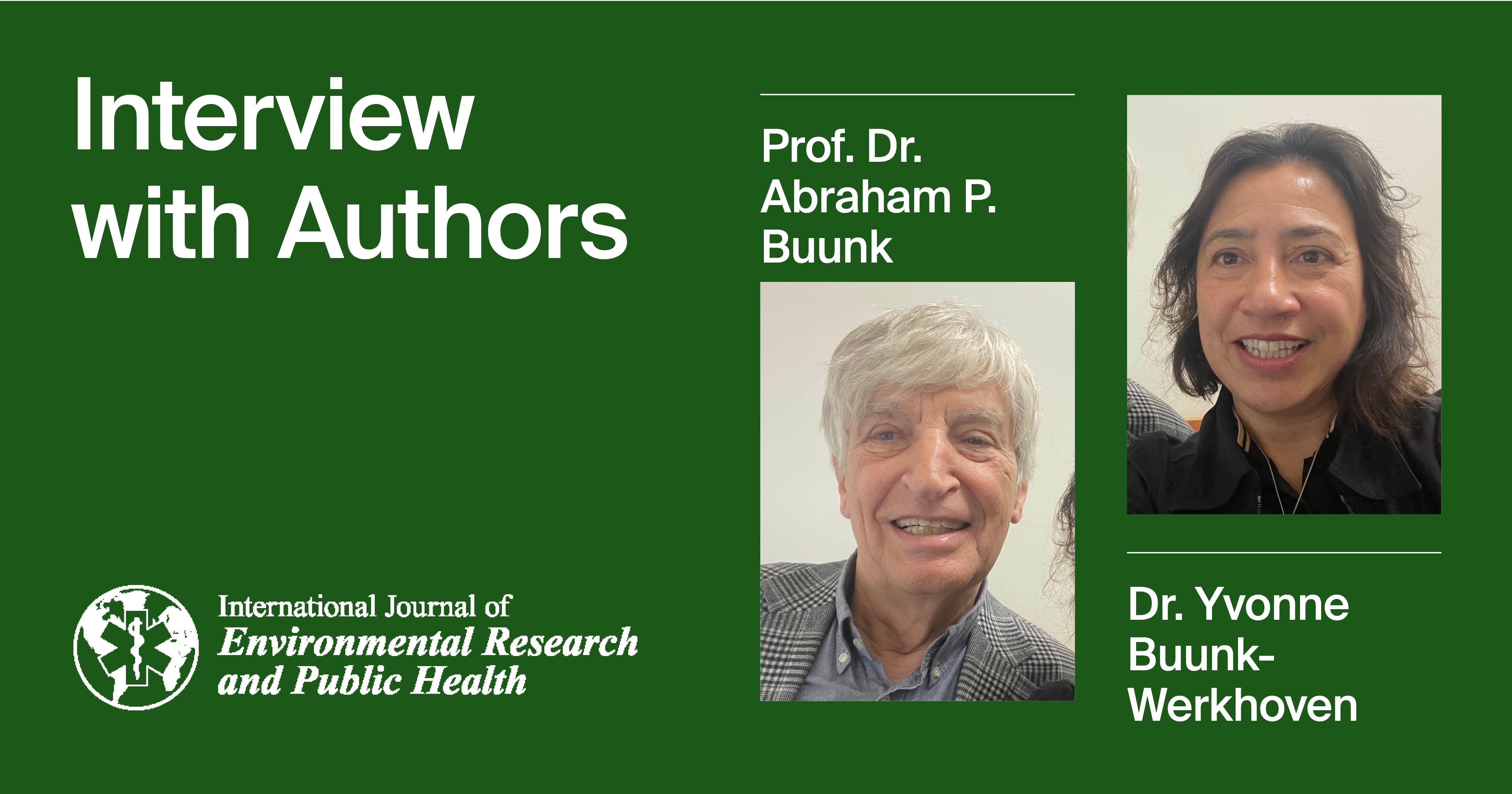
Journal Menu
► ▼ Journal Menu-
- IJERPH Home
- Aims & Scope
- Editorial Board
- Reviewer Board
- Topical Advisory Panel
- Instructions for Authors
- Special Issues
- Topics
- Sections & Collections
- Article Processing Charge
- Indexing & Archiving
- Editor’s Choice Articles
- Most Cited & Viewed
- Journal Statistics
- Journal History
- Journal Awards
- Society Collaborations
- Editorial Office
Journal Browser
► ▼ Journal Browser-
arrow_forward_ios
Forthcoming issue
arrow_forward_ios Current issue - Vol. 22 (2025)
- Vol. 21 (2024)
- Vol. 20 (2023)
- Vol. 19 (2022)
- Vol. 18 (2021)
- Vol. 17 (2020)
- Vol. 16 (2019)
- Vol. 15 (2018)
- Vol. 14 (2017)
- Vol. 13 (2016)
- Vol. 12 (2015)
- Vol. 11 (2014)
- Vol. 10 (2013)
- Vol. 9 (2012)
- Vol. 8 (2011)
- Vol. 7 (2010)
- Vol. 6 (2009)
- Vol. 5 (2008)
- Vol. 4 (2007)
- Vol. 3 (2006)
- Vol. 2 (2005)
- Vol. 1 (2004)
Need Help?
Announcements
7 May 2025
International Journal of Environmental Research and Public Health | Interview with the Authors—Dr. Yvonne Buunk-Werkhoven and Prof. Dr. Abraham P. Buunk

Name: Dr. Yvonne Buunk-Werkhoven
Affiliations: Faculty of Medicine, Kauno Kolegija, LT-50468 Kaunas, Lithuania
Interests: promotion of oral health, oral hygiene behavior, oral discomfort, public health, social health, social psychology, behavioral sciences, applied research, interventions
Name: Prof. Dr. Abraham P. Buunk
Affiliations: Social Psychology, Faculty of Behavioral and Social Sciences, University of Groningen, 9712 CP Groningen, The Netherlands
Interests: social psychology
“A Two-Dimensional Scale for Oral Discomfort”
by Yvonne A. B. Buunk-Werkhoven, Dick P. H. Barelds, Arie Dijkstra and Abraham P. Buunk
Int. J. Environ. Res. Public Health 2025, 22(3), 415; https://doi.org/10.3390/ijerph22030415
Available online: https://www.mdpi.com/1660-4601/22/3/415
1. Could you give us a brief introduction about yourself and your current research topic?
My name is Yvonne Buunk-Werkhoven, and I am an Associate Professor at Kauno Kolegija in the Faculty of Medicine in Lithuania. I am both a social psychologist and an oral hygienist. I earned my degree 15 years ago in the field of behavioral and social sciences. My current Public Health research focuses on the promotion of oral health, behavioral change in oral hygiene practices, and understanding oral discomfort. My work often explores the intersection between social psychology and oral hygiene, seeking ways to apply psychological theories to clinical oral health challenges.
2. Could you describe the difficulties and breakthrough innovations in your research field?
A key challenge in our field is aligning psychological measurement tools with clinical practice. In behavioral science, we often rely on questionnaires and models but applying these findings in the clinic isn’t always straightforward. A real breakthrough comes when we manage to integrate both evidence-based and practice-based approaches, bridging theory with what’s truly needed in day-to-day patient care. The innovation lies in that dual perspective—scientific rigor combined with practical relevance.
3. What motivates you to conduct research in this field?
Initially, I worked as an oral hygienist and later transitioned into social psychology. This blend of backgrounds inspired me to better understand how people adopt and maintain oral hygiene habits. Changing health behavior is deeply personal and influenced by many contextual factors—culture, environment, individual differences. I’m especially motivated by the need to tailor interventions to specific populations, respecting their unique circumstances. For me, oral health is a key part of general health and social well-being.
4. How do you evaluate current research trends in your field, and what advice would you give young scholars?
Currently, the field leans heavily toward prevention, which is important, but I believe we also need to promote positive health outcomes. I encourage young scholars to shift focus from illness and care toward health and behavior. Starting from the premise that oral health exists by default—and is disrupted by various influences—can lead to more proactive, empowering research. Oral health impacts everything from physical health to self-confidence and interpersonal relationships. Young researchers should embrace holistic and behavioral approaches.
5. How did you hear about our journal, and what was your impression of the publishing experience with IJERPH?
We found the journal through Abraham’s involvement as a member of the Editorial Board. When we were looking for a suitable venue for our manuscript, he suggested submitting it to IJERPH. The publishing experience was excellent—the reviewer comments were especially constructive and helped us refine our work. One reviewer even remarked on the potential impact of our research on dental clinical practice. We were also pleased to see our adapted measurement scale receive positive attention. While the editorial system could be simplified a bit, overall, we’re very happy with the process and plan to submit more work soon.



